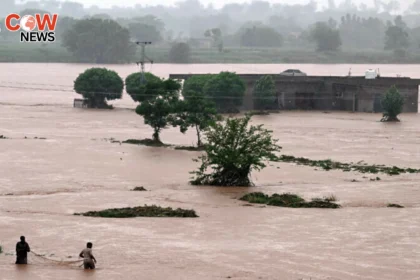Istanbul( The COW News Digital) The ongoing Pakistan-Afghanistan peace talks in Istanbul have reportedly hit a deadlock, as the Afghan Taliban delegation remains unwilling to fully accept Pakistan’s key demands, despite what sources describe as reasonable and legitimate proposals presented by Islamabad.
According to diplomatic sources, the third round of talks, hosted by Turkey with Qatar acting as mediator, has entered its third day amid mounting difficulties. Negotiations are said to have stalled over Pakistan’s insistence on concrete assurances related to border security, cross-border militancy, and cooperation against banned groups operating along the Pak-Afghan frontier.
Sources involved in the discussions told The COW News that both host nations — Turkey and Qatar — acknowledge Pakistan’s demands as “logical and justified.” Interestingly, members of the Taliban delegation themselves reportedly agree in principle that the concerns raised by Islamabad are valid, but they have been unable to commit due to direct instructions from Kabul authorities.
“The Taliban representatives are in constant communication with Kabul and appear to be moving strictly according to the directives they receive,” one diplomatic insider said. “It is evident that their position is being controlled from the Afghan capital.”
Pakistan’s delegation has maintained a firm but conciliatory stance, emphasizing that the acceptance of these demands is “in the mutual interest of both nations and critical for long-term regional peace.” Despite this, sources say, no encouraging response has been received from the Taliban side so far.
Mediators reportedly urged the Afghan representatives to show greater flexibility, reminding them that cooperation with Pakistan would strengthen stability and economic connectivity across the region, especially under projects linked to CPEC and Central Asian trade routes.
However, the lack of progress suggests that certain factions within Kabul may be pursuing “a separate agenda,” potentially influenced by regional rivalries or internal political calculations.
Diplomatic observers note that while Islamabad’s approach has remained measured and evidence-based, the Taliban delegation’s hesitation could further strain already tense relations between the two neighbors.
For now, the Istanbul peace dialogue remains in limbo, with mediators hoping that renewed discussions in the coming days might help bridge the gap and restore momentum toward a sustainable peace framework.








